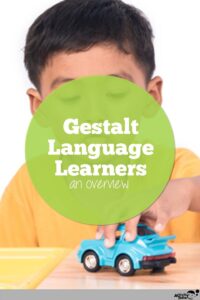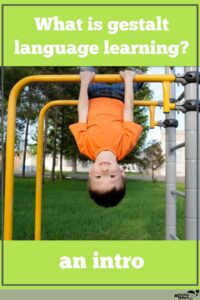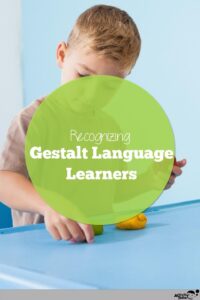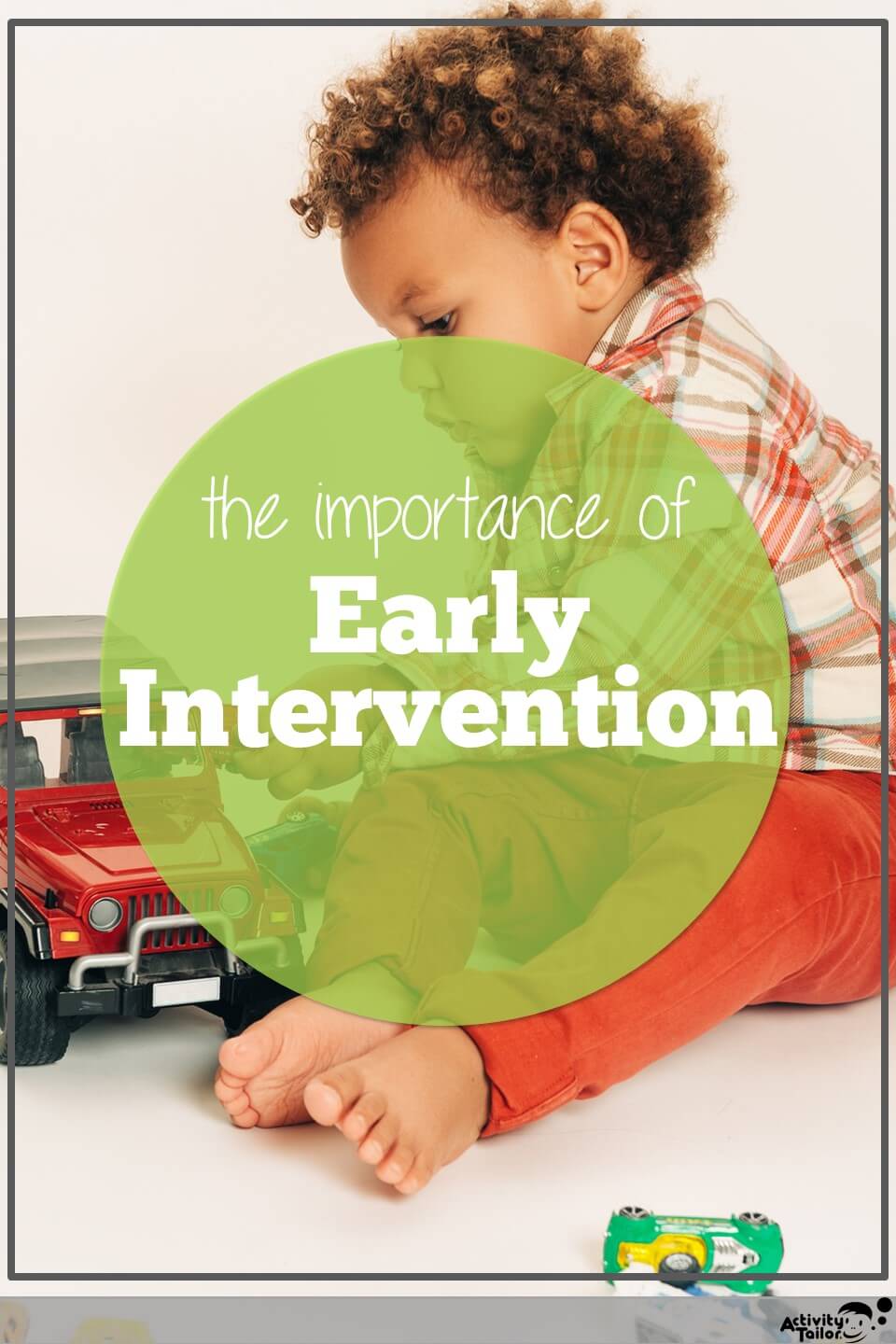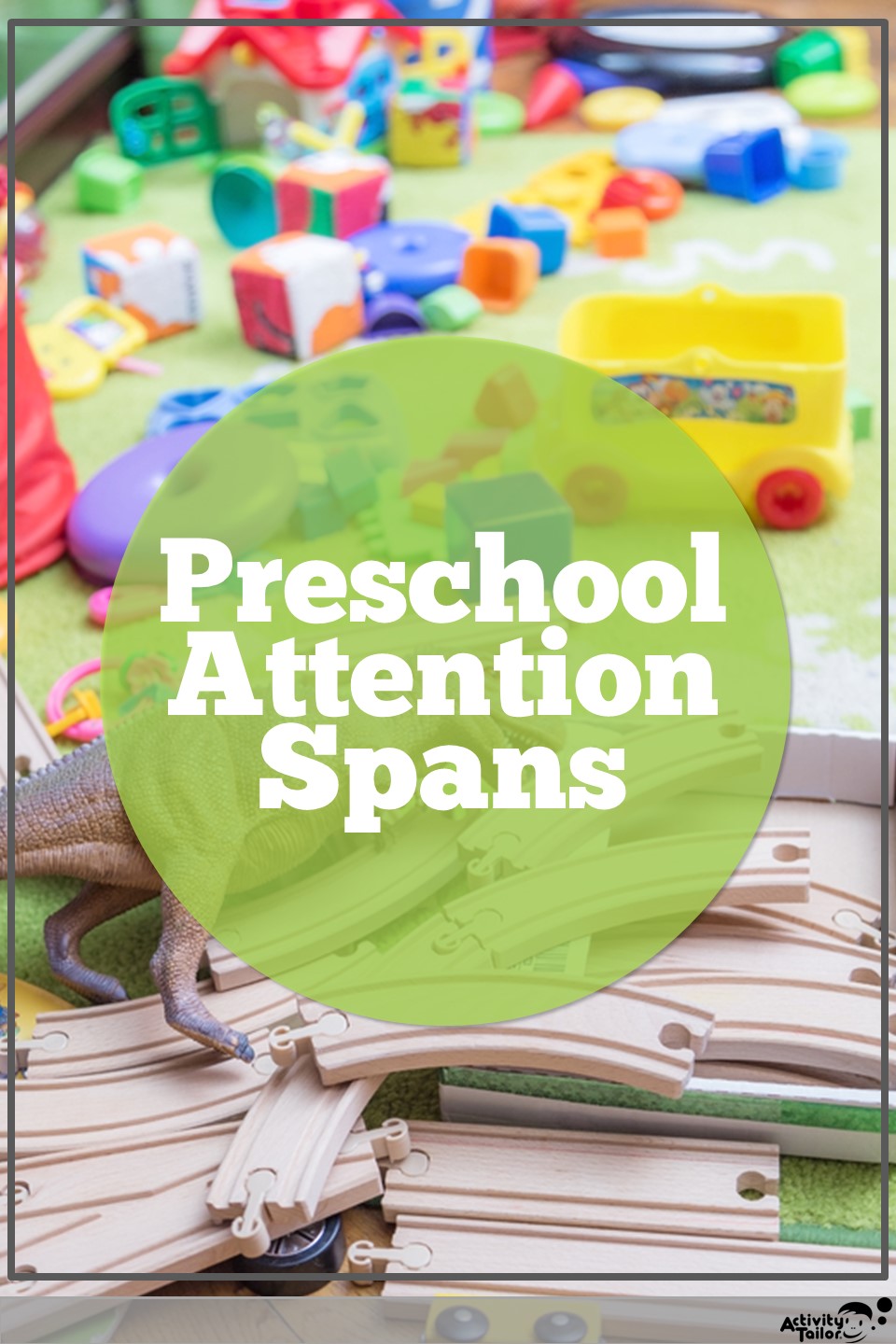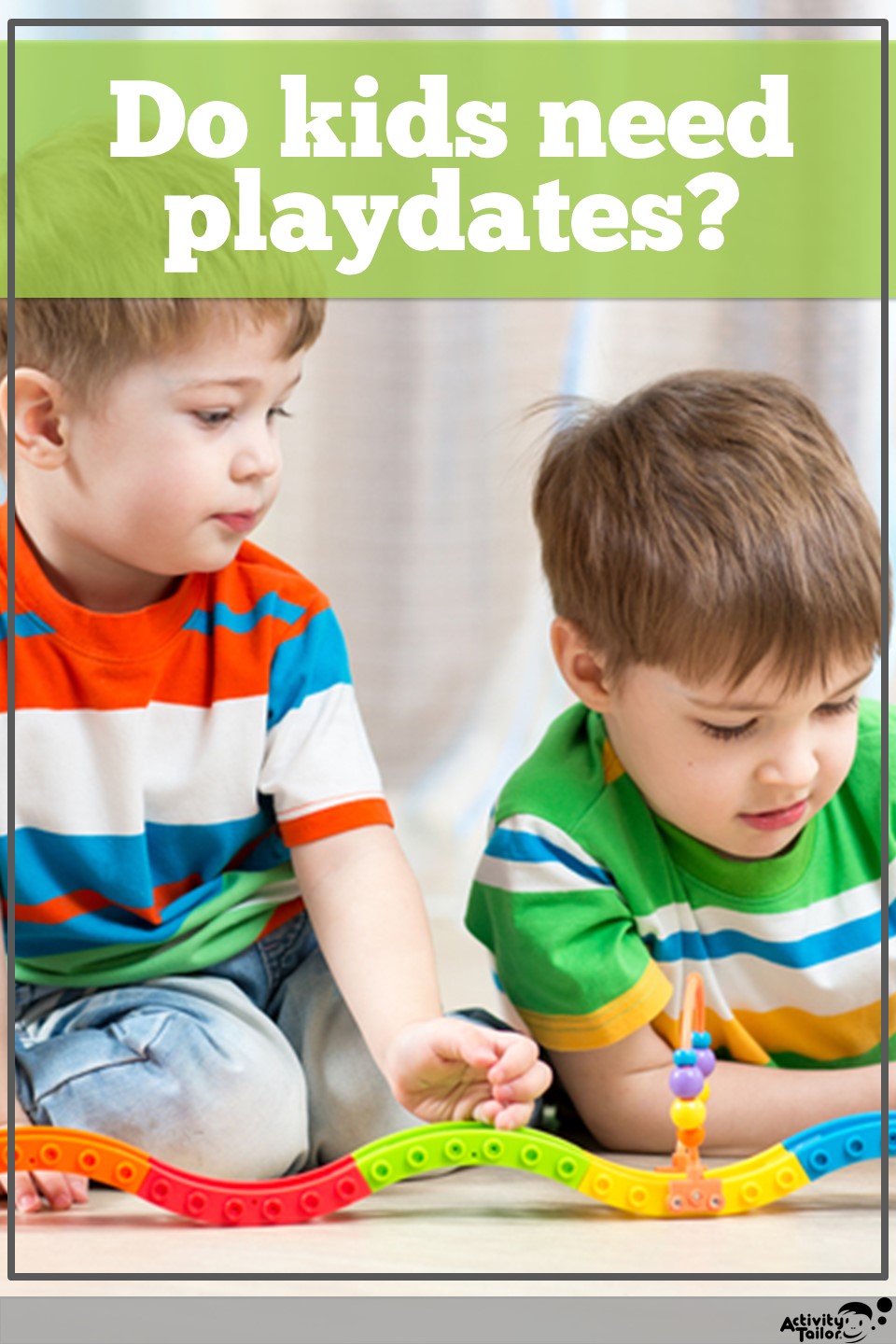Does your child repeat words and phrases? Maybe common things you say or lines from their favorite song or show? Do the words or phrases sometimes feel out of place? Even though they repeat, does it feel like your child doesn’t repeat when you ask them to? Your child might be a gestalt language learner!
What is Gestalt Language Learning?
Gestalt language learning is a style of language learning that starts with repeating phrases and ends with making new, spontaneous speech.
Unlike most children who learn to communicate starting with single words, gestalt language learners acquire language through chunks called “gestalts”.
Gestalt vs Analytic Language Learning
When children typically learn language starting with single words, this is known as analytic language learning. Most children are analytic language learners. This style progresses from single words to multi-word sentences.
Both analytic and gestalt language learners process and gain language in predictable patterns and start with a single unit of meaning. They just start the process differently!
They also both lead to unique, complex language initiated by the child.
Stages of Analytic Language Learning
- Single words with a single meaning per word
- Two-word phrases
- Three-word phrases
- Multi-word phrases and full songs or stories
SLPs, looking for a crash course in early language? Check out Early Language Masterclass.
Stages of Gestalt Language Learning (Blanc 2012)
- Repeating familiar words or phrases that have a single meaning for the child (also referred to as “echolalia”)
- Can be repeated immediately or later on
- Can be lines from a favorite song, book, or television show
- Can be familiar phrases you say in routines or one that had an interesting vocal pattern and stuck out to your child
- Mitigated Echolalia (modified repeated messages)
- Parts of stage 1 gestalts are used together with other parts of phrases to create new ones
- Isolation & Recombination
- Gestalts from stage 1 are broken down more into single words and then used to make new short phrases
- Original words and sentences speech
*Don’t underestimate your child’s repeated speech! Echolalia communicates!
But How do I Really Know if my Child is a Gestalt Language Learner?
It’s more than just acquiring language in chunks rather than starting with single words! You will often find other signs in your child’s learning style that are common in gestalt language processing.
Learning Style Cues
- Echolalia
- Song-like speech
- Repetitive play
- Pronoun mistakes (e.g. saying “you” instead of “me”)
- Humming or vocal noises
- Watching videos repetitively
- Early interest in the alphabet
- & more
Does this mean my Child is Autistic?
No, not always! Many autistic children are gestalt language learners, but not all gestalt language learners are autistic. Gestalt language learning is a piece of an autism assessment that will be addressed by a trained diagnostician, but it’s not the end-all-be-all in the evaluation.
Hyperlexic learners are more likely to process language through “chunks” as well. Some neurotypical children also learn language in this way. (Robson, 2023) (Communication Development Center, 2022)
How to Support a Gestalt Language Learner
Be Responsive
Respond to your child when they communicate through repeated speech. Acknowledge to them that their communication is valid to you!
Become a Detective
Your child’s repeated speech may not mean exactly what it sounds like.
E.g. “Wasn’t a cloud in the sky!” may not actually be referring to the weather but possibly wanting to watch a favorite movie, enjoy screentime, etc.
Stop and consider what your child’s words may actually be saying. Don’t forget, you are the best person for this detective job!
Consider using AAC
You can support your child’s communication attempts through the use of various types of AAC. No-tech, low-tech, and high-tech are all great options, depending on your child’s unique needs, preferences, and language abilities.
Learn more about AAC here!
More Gestalt Language Learning Resources
Alexandria Zachos, owner of Meaningful Speechie, is an SLP specializing in gestalt language learning. She shares a wealth of information for parents and SLPs on her website and Instagram so you’ll definitely want to give her a follow!
For SLPs, Marge Blanc’s Natural Language Acquisition in Autism courses through Northern Speech Services are phenomenal (speaking first-hand here)! There are three parts to the learning series available for a total of 1.6 CEUs. Your approach to intervention with gestalt language learners will never be the same after investing in these courses!
Share information on gestalt language learning and more with Parent Education Handouts on ASD and Sensory Processing topics.
Don’t be afraid of your child learning language differently than most. Embrace it, and remember, you’re exactly who your child needs!
You might also be interested in
Recognizing the Early Signs of Autism
Why is Early Intervention Important?
Resources
Blanc, M. (2012) Natural Language Acquisi- tion on the Autism Spectrum: The Journey from Echolalia to self-generated language. Communication and Development Center.
Communication Development Center. (2022). https://communicationdevelopmentcenter.com/
Robson, D. (2023). Gestalt Learning & Hyperlexia: What Does it Mean to be a Gestalt Learner? And Next Comes L. https://www.andnextcomesl.com/2021/08/gestalt-learning.html


